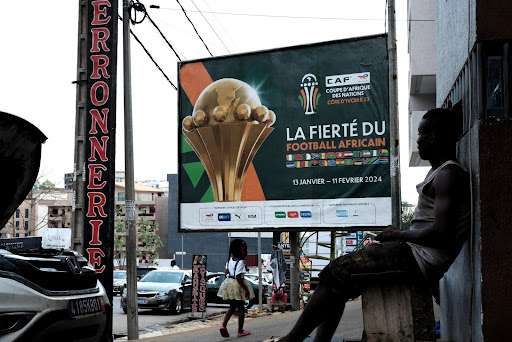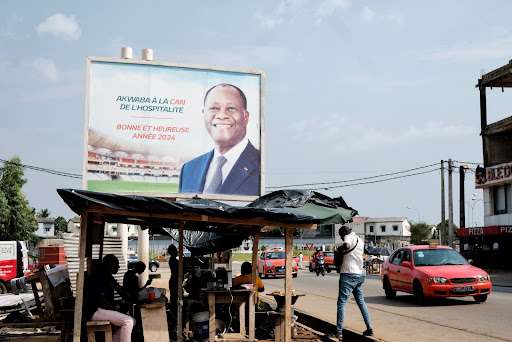Africa Cup of Nations: A potential economic turning point for Ivory Coast

With just a few days to go before the opening of the 34th edition of the Africa Cup of Nations (AFCON), Ivory Coast is getting ready for the competition.
Five months ago, on the eve of the National Day, President Alassane Dramane Ouattara already expressed his confidence by saying: "We are prepared to host the continent's biggest sporting event”.
The stakes are highly political in a country where the post-electoral crisis of 2010-2011 deeply divided the population. This major event is an opportunity to unite citizens around a third championship title as the 2025 elections approach. However, the true challenge is primarily economic for the Ivorian society.

Massive infrastructure investments
The tournament will take place in five cities and six stadiums: Abidjan (two stadiums), San-Pedro, Bouaké, Korhogo, and the capital city of Yamoussoukro. Four of these arenas were inaugurated after 2020, a result of massive investments by Ivorian authorities. In the context of AFCON, the total investment amounts to $1.5 billion, with $845 million dedicated to infrastructure.
Another priority sector is mobility. In recent years, the government has undertaken major road projects, including the renovation of the 350-kilometre Abidjan-San-Pedro axis and the creation of new roads on the North-South axis connecting Bouaké, Yamoussoukro, and Abidjan. Several plans to renovate regional airports, such as those in San-Pedro and Korhogo have also been initiated.
A significant challenge for the tourism sector
For the reception of the international supporters, authorities, in close collaboration with the AFCON organising committee, have chosen to invest in networks of young volunteers. As announced by Prime Minister Robert Beugré Mambé on January 4, 10,000 volunteers will be responsible for providing directions. While another 20,000 will be in charge of filling the stadiums in the event of poor attendance, cleaning the fan villages and regulating traffic flows.Accommodations have also undergone a modernisation campaign, including the iconic renovated Sofitel Ivoire in Abidjan and the creation of new hotels in host cities. The organising committee is responsible for setting up fan villages where supporters can gather. Taxis, restaurants, and hotel facilities are gearing up to welcome an estimated influx of 1.5 million visitors in addition to the 23 foreign teams.
The Ivorian youth vision
For Ibrahima Diabate, President of the National Council of Young Ivorians (CNJCI), the AFCON is a step forward for his generation: "Peace is the condition for development, and hosting the competition is a strong marker". He praised the authorities' initiative in choosing young volunteers to be the country's first ambassadors. He also assured the audience that awareness-raising campaigns on youth issues such as good governance and reproductive health would be conducted in the fan villages in collaboration with several United Nations agencies.
He is also very pleased with the new infrastructure, which will broaden the country's prospects. His expectations for the post-AFCON period are focused on the backcountry: "The economic dynamic will inevitably be a little less intense, but I have great hope that the situation will be sustainable. From the point of view of young people, our priority is to see the regions that are far from the major economic centres become more dynamic, and for sports to become more professional and open up opportunities thanks to the new equipment".
Long-term expectations
These developments have significantly boosted the local steel industry and the construction sector. During the competition, advertising revenue, broadcasting rights, and ticket sales are expected to partially offset the investments. Even though road improvements will likely benefit the daily lives of Ivorians after the competition, the future is less certain for stadiums or accommodations that must continue running.
The challenge for the Ivorian government will be to maintain the AFCON's dynamism over time. This competition has become an international showcase and Ivory Coast aims to capitalise on it to attract investors and develop a new tourism sector. In order to do this, the Ministry of Tourism plans to take delegations on trips to discover the country's attractions. These positive effects could boost an already high growth rate estimated at 7% for the year 2024 by the African Development Bank.